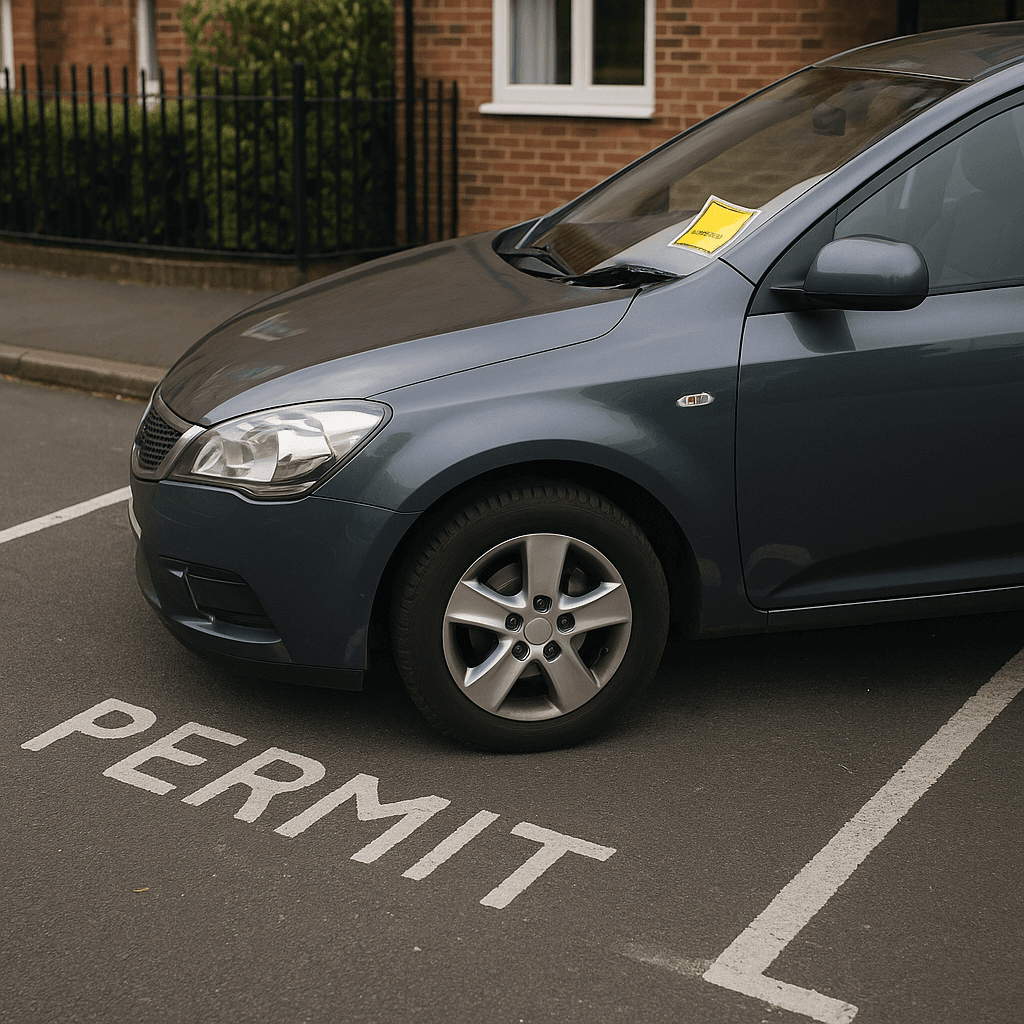
Understanding PCN Code 85: Parked in Permit Bay Without a Permit
Tariq Khan
•4 min read
Understanding PCN Code 85: Parked in Permit Bay Without a Permit
Parking in the UK can often feel like navigating a minefield, particularly when it comes to understanding the array of contravention codes that could lead to a Penalty Charge Notice (PCN). One such code that frequently trips up motorists is PCN Code 85: Parked in a permit bay without a permit. If you’ve ever returned to your vehicle to find a PCN slapped on the windscreen, you’re not alone. Let’s dive into what PCN Code 85 is all about, how you can contest it if you think it’s been wrongly issued, and how you can avoid it in the future.
What is PCN Code 85?
PCN Code 85 is issued by local councils when a vehicle is found parked in a designated permit bay without displaying a valid permit. These bays are typically reserved for residents, businesses, or other specific groups who hold a permit, ensuring they have a guaranteed space in busy areas. Parking in these bays without a permit disrupts this system and can lead to a fine.
Example Scenario: Imagine you’re visiting a friend in a densely populated neighbourhood. Upon arrival, you spot a convenient parking space right outside their home. You quickly park, not noticing the permit-only sign. A few hours later, you return to find a fine on your windshield—a classic case of PCN Code 85.
The Implications of Receiving a PCN
Receiving a PCN for contravention code 85 means you’ll be required to pay a fine. The amount typically varies depending on the council, but it usually ranges from £60 to £130. It’s crucial to note that paying within a specified early payment period, often 14 days, can reduce this amount by up to 50%.
How to Challenge a PCN
If you believe the PCN was issued in error, you have the right to challenge it. Here’s how you can go about it:
-
Gather Evidence: Start by collecting any evidence that supports your case. This could include photographs of the area, parking signs, or your permit if you indeed had one but it wasn’t visible.
-
Check the Details: Ensure all details on the PCN are correct, including the date, time, and location of the alleged offence. Mistakes on the notice can be grounds for an appeal.
-
Write an Appeal Letter: Address the letter to the council, clearly stating your case and why you believe the PCN is incorrect. Attach any evidence you’ve collected.
-
Submit Within the Deadline: Appeals must be submitted within a specific timeframe, often 28 days from the date of issuance. Missing this deadline can forfeit your right to challenge.
Pro Tip: Use the council’s online portal for submitting appeals. It’s often faster and ensures you receive an acknowledgment of receipt.
Understanding Council Parking Enforcement
Local councils are responsible for enforcing parking regulations, including issuing PCNs. This enforcement ensures that permit bays are available for those who need them, such as residents or businesses in busy areas. Each council may have slightly different rules or procedures, so it’s essential to familiarise yourself with local parking regulations whenever you’re driving in a new area.
Tips to Avoid PCN Code 85
Avoiding a PCN for parking in a permit bay without a permit can save you both time and money. Here are some practical tips:
-
Read All Signs: Always check for parking signs or road markings that indicate permit restrictions. If in doubt, look for alternative parking spots.
-
Use Parking Apps: Many councils now support mobile apps that show real-time parking information, including permit zones. These can be a lifesaver in unfamiliar areas.
-
Ask Locals: When visiting friends or family, ask them about local parking rules. They might even have a visitor permit you can use.
-
Time Management: Be mindful of the time restrictions on parking bays, especially if you’re using a timed permit. Set reminders on your phone to avoid overstaying.
Taking the Next Steps
Receiving a PCN can be frustrating, but understanding PCN Code 85 helps demystify the process. If you’ve received a PCN, take the time to evaluate whether it was issued correctly. Gather your evidence, and if you believe it’s unjust, don’t hesitate to challenge it through the proper channels.
Final Thoughts: Navigating the world of parking in the UK requires vigilance and a bit of local knowledge. By staying informed and prepared, you can avoid the common pitfalls associated with parking contraventions. Keep these tips in mind, and you’ll be well-equipped to handle any parking situation that comes your way. Safe and happy parking!